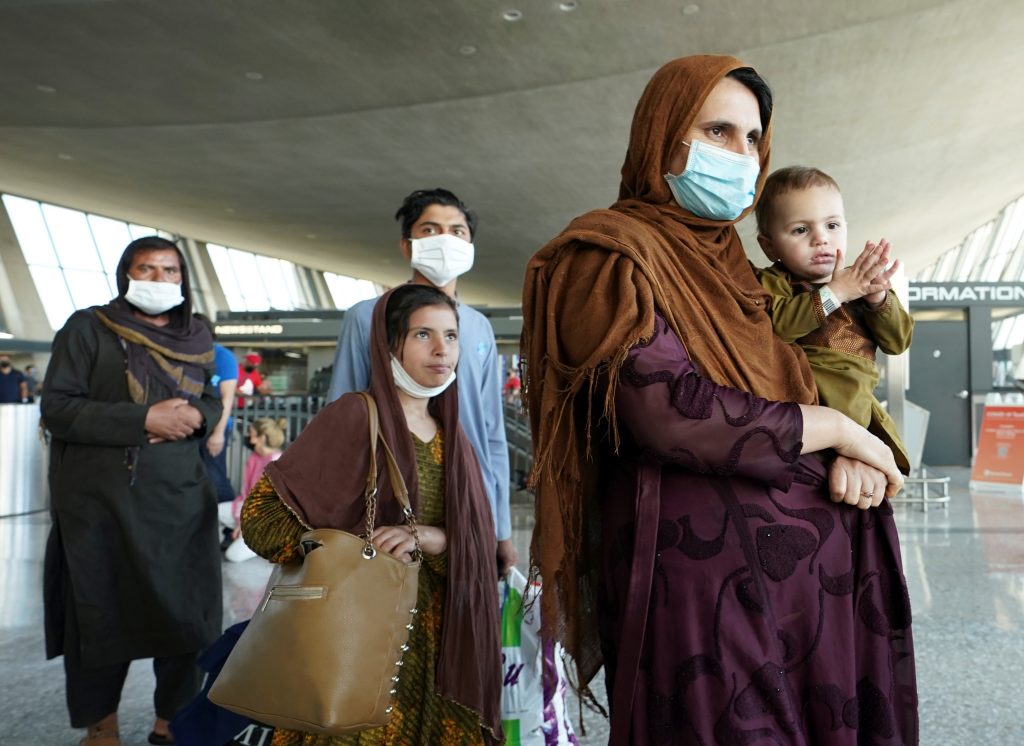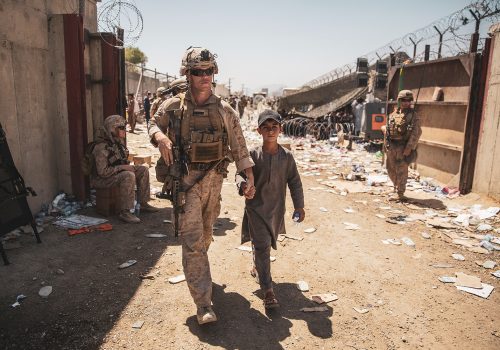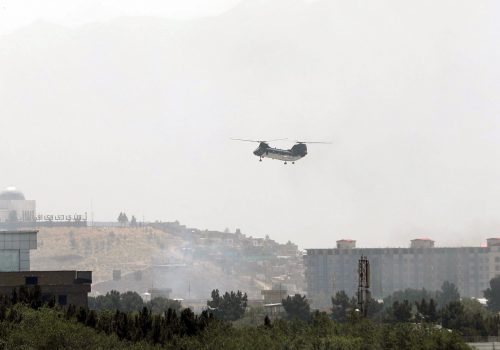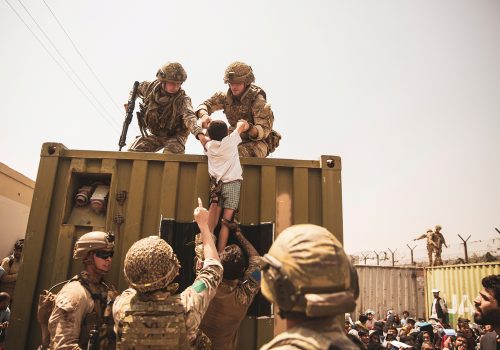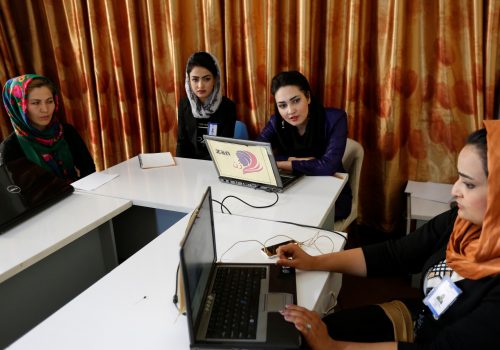The Taliban takeover, solidified on August 15, 2021 with the fall of Kabul and the collapse of the Afghan republic, is unbearably devastating and shocking.
Rewinding for a moment back to 2003, I pushed to utilize events associated with Afghan loya jirgas, or grand assemblies, to argue for the installation of a democratic government. I helped raise awareness about the new Afghan constitution and how the adoption of democratic governance and human rights would benefit Afghanistan. I helped established organizations, radio stations, libraries, peacebuilding programs, and initiatives to promote democratic governance, freedom of expression, and human rights. I also advocated for women in education and the economy as well as helped to develop policies and strategies for women’s inclusion in politics. This work was, however, a group effort—I launched and facilitated these programs with many other progressively-minded people, international organizations, and friends of Afghanistan. Everyone involved in these wide-ranging efforts believed in a democratic society and was committed to creating a functional governance system based on the rule of law and human values. Even now, I believe that these programs made a significant contribution to the nation and state-building in Afghanistan that followed. In the last twenty years, there have been undeniable gains in various sectors across the country. And yet, here we are. It is incredibly difficult to realize that these vast advances may now be completely undone.
Since 2001, people’s blood was spilled to build an Afghan republic that worked to defend human rights and freedoms. It is heart-wrenching to watch the Taliban, a militant group, restrict the values and freedom of human lives, and take over as if they earned it. The collapse of Afghanistan’s republic is not only the collapse of a system that many of us took part in building. It’s also a collapse of democratic values, human rights, freedom, and dignity. Those of us closely observing the Afghan political processes have consistently argued that the fall of this republic would mean the start of a new and prolonged war—an unwanted phase that would allow Afghanistan to become a haven for terrorists to emerge, a mass migration of the Afghan people, and an utter human catastrophe.
The Taliban takeover has created hopelessness, fear, and insecurity in Afghanistan. There is sufficient evidence to indicate that the Taliban from twenty years ago are no different from the Taliban of today. Though they showed restraint during the first few days of their takeover by maintaining security and order in some provinces, this “shift” was aimed at appeasing the international community to bolster recognition and their own legitimacy. The Taliban has already begun exerting their restrictive rule, preventing women and girls from attending education institutions and workplaces, and asking them to stay home and not leave without a male escort. Men are also affected and worry about their wives, daughters, and sisters, in addition to social restrictions on their own movement and the reintroduction of public executions. With the Taliban actively searching houses and seeking to identify individuals who helped NATO and US forces, people have decided to leave their houses, find shelter in other places, and hide their identities. Afghans in urban areas are particularly worried about losing everything they have gained over the last twenty years. People are fearful of potential Taliban atrocities, the loss of their right to education, work, political participation, and freedom of movement. They fear the return of enslavement, torture, and above all, abandonment. The Taliban’s repressive system, if reinstated, will create a restrictive authoritarian system where individual safety and rights are undermined, causing mass migration and a humanitarian crisis.
What does the legitimization of the Taliban by the international community mean? It is a serious and dangerous move. To be clear, the Taliban is an insurgent group that has only ever fought for power. They are a violent, radical, religious organization that has never expressed regret for the crimes and violations that they have committed. They are notorious for their long list of atrocities including public executions, targeted killings, and violent suppression of women and other minorities, to name a few. Their initial lack of interest in participating in the negotiations in Doha demonstrated a clear intention to obtain ultimate power without any commitment to a political settlement. They have never expressed willingness to change their attitudes and behavior. The Taliban clearly demonstrated their intentions when they developed ties with transnational terrorist organizations and retained ties with al-Qaeda.
It would be a grave mistake to recognize the Taliban without a more thorough assessment of their behavior, connections with transnational terrorist networks, governance strategy and practices, and exerting conditionality for the protection of women and minority rights. The question remains: what should happen now that the Taliban has taken over, instilling the potential for further instability and chaos, particularly amid the attacks at Kabul airport on August 26?
This is the time for the international community to stay engaged—even more than before—to address the humanitarian crisis caused by the Taliban’s takeover, to ensure their commitment to security and peace, and to prevent further Taliban-committed atrocities. The international community must scrutinize the Taliban’s treatment of the population at large and the enforcement of women’s right to education, freedom, work, and political participation.
Washington and the international community have managed to retain some leverage, however, in the power to establish conditions for economic aid and recognition of the Taliban as the legitimate government of Afghanistan. This leverage can and must be used to exert pressure on the Taliban to establish an inclusive government, push for a democratic system, and further protect the rights, needs, and participation of Afghan women and minorities. The future—as well as the last twenty years of tireless work—depend on the swift and strategic decisions of today by Afghanistan and its allies.
Nilofar Sakhi is a nonresident senior fellow at the Atlantic Council’s South Asia Center and the director of policy and diplomacy at McColm & Company.

The South Asia Center is the hub for the Atlantic Council’s analysis of the political, social, geographical, and cultural diversity of the region. At the intersection of South Asia and its geopolitics, SAC cultivates dialogue to shape policy and forge ties between the region and the global community.
Related Content
Image: Afghan refugees arrive at Dulles International Airport in Dulles, Virginia, on August 27, 2021. Photo via REUTERS/Kevin Lamarque.
